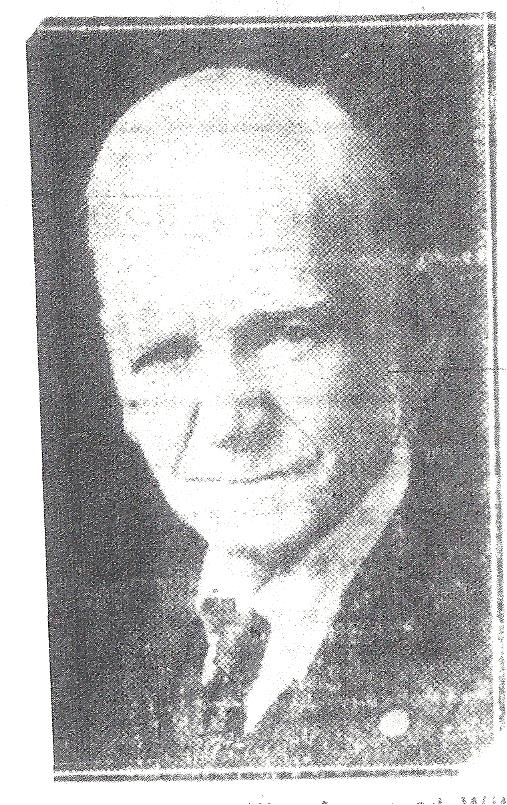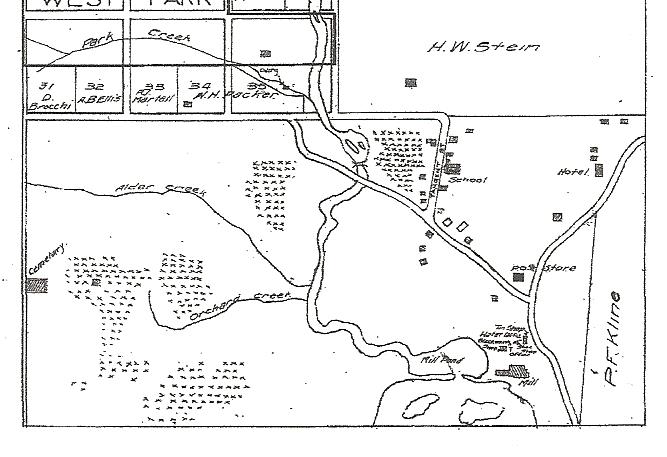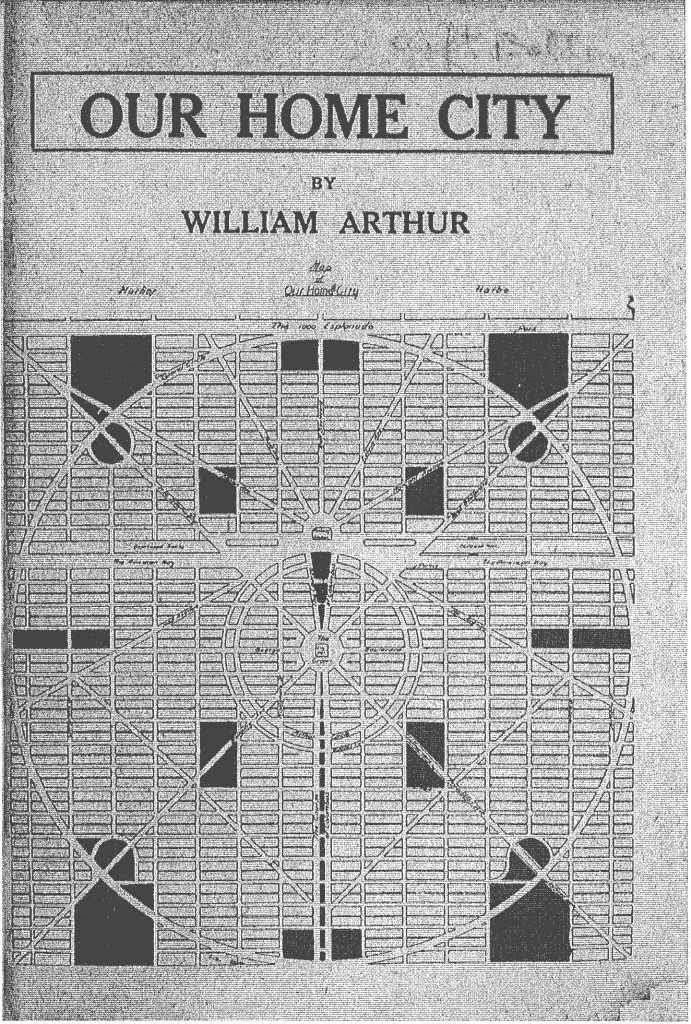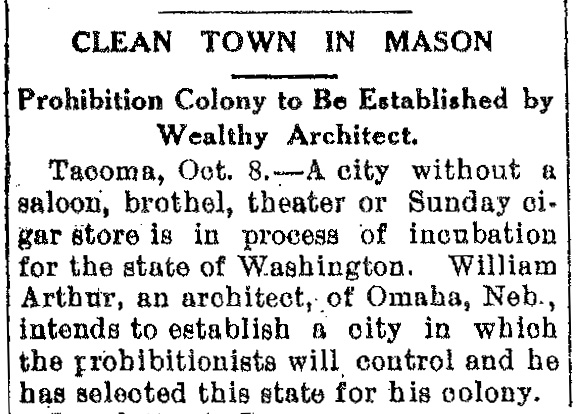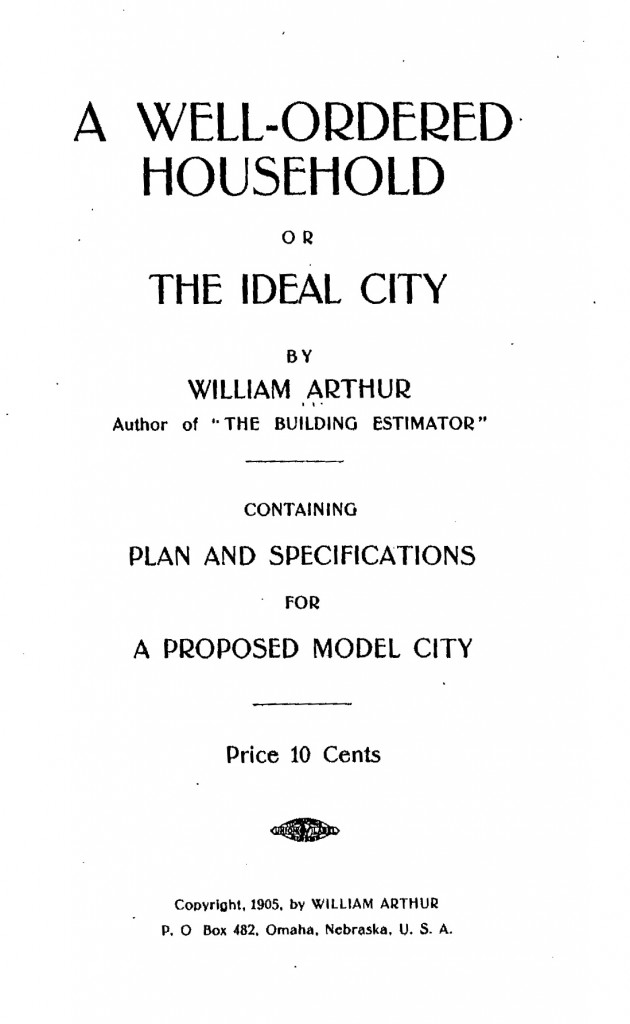From the desk of Steve Willis, Central Library Services Program Manager of the Washington State Library
William H. Packer was probably among the last living Civil War veterans in Washington State. In his eventful life he was able to strut and fret his hour upon the stage alongside Edwin and John Wilkes Booth, serve in the Union Army, and help found a Socialist Utopian community in Washington State.
Changing his surname from Packard to Packer in order to avoid detection from his family, William enlisted in the Union Army and initially served as a drummer boy but eventually took up arms. He saw quite a bit of action including Gettysburg, Rappahannock, and the fall of Richmond.
The following profile is from page 1 of the March 11, 1921 issue of the Bay-Island News, published in Gig Harbor. The piece was originally printed in the Tacoma Ledger.
BOY ACTOR OF ’59 LEARNS ART OVER
Gig Harbor Man Who Appeared with Booth Studies Stagecraft Here.
“Sputtering gas lights, which cast a yellow glare, floors built on a slope that the audience might have a better view, scenery sections built on flats or rollers, which made a great rumble when brought together in the middle of the stage, and strictly conventional furnishings of the somewhat showy style of the period– such was the stage on which W.H. Packer of Gig Harbor, began in 1859, a boy of 14 years, with Edwin Booth and John Wilkes Booth, a stage career which was cut short by the Civil War.”
“Now, at 76, Mr. Packer is learning modern methods in stagecraft as taught at the Drama Institute last week at the Soldiers’ and Sailors’ clubhouse. Heavy velvet drapes, concealed lights casting a soft, indistinct glow, shaded footlights or sometimes no footlights at all, fanciful settings, such as only a most imaginative mind could evolve, these are some of the changes Mr. Packer has found in the stage of today. But despite the changes, he says he thoroughly enjoyed the institute and believes that he ‘may shift into some sort of play.'”
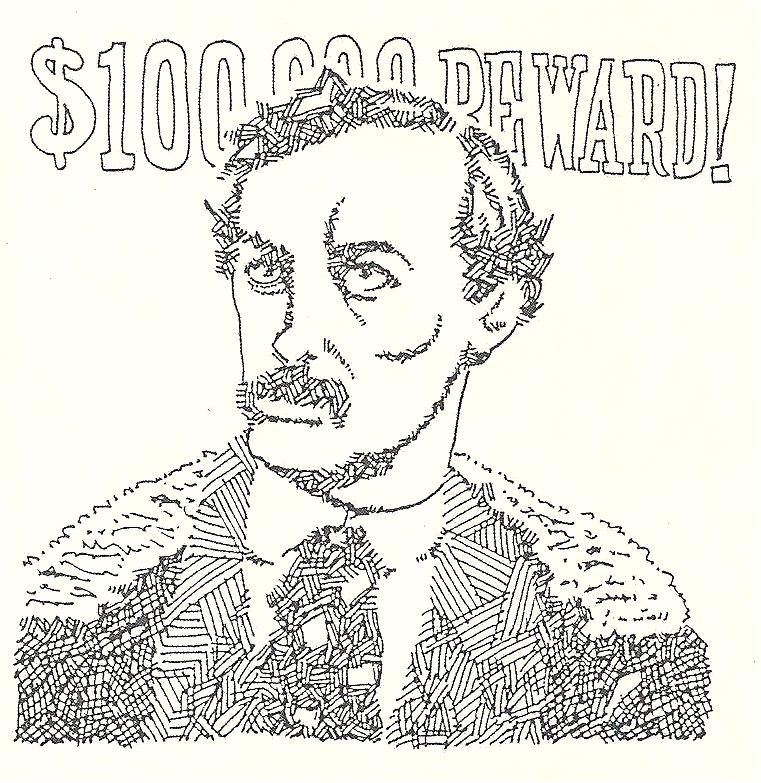
“Born in Boston, Mr. Packer was attending school there when he had an opportunity to fill an auxiliary role in ‘Hamlet,’ in which Edwin Booth was playing the lead. It was greatly to the envy of his schoolmates that he appeared on the stage at the same time as the great actor. All spare moments following school hours found the boy at the Boston theater, watching every movement, listening to every word of the man whose fame as an American actor had spread throughout the country. A few months later he was given a part in the play in which John Wilkes Booth was then taking the lead.”
Drummer Boy in Civil War
“Then came the Civil War, and Mr. Packer, a boy of 16, enlisted as a drummer boy in the 11th United States infantry. For three years and month he served in the army and on receiving his discharge returned to Boston, where, a short time later, he was married. Mrs. Packer, however had no such admiration for the theater as had her young husband so he gave up his idea of becoming a famous actor and turned his attention to becoming an expert electrician. He and his wife traveled over the United States for a time, the electrician sometimes finding employment in a theater where he gave much time and attention to working out new lighting effects.”
“On their return East, Mr. Packer became head of the city light department at Binghampton, N.Y. Here he continued his experiments in lighting and when Admiral Robert E. Peary returned to the United States after discovering the North Pole, and was to give a lecture in the Binghampton theater, Mr. Packer was asked to arrange the stage.”
“‘That was the hardest job I ever had,’ said Mr. Packer. ‘I wanted to show the Northern lights and a rainbow. I worked on it for a long time but finally managed to get a beautiful effect. Maybe the Northern lights weren’t just right but most of the people had never seen them anyway, so it didn’t make any particular difference.'”
One of Founders of Burley
“Twenty-two years ago, in the fall of ’98, the wanderlust again seized Mr. Packer and he and his wife started for the Pacific coast. They arrived in Seattle, stayed there for three months and then, with a man by the name of DeArmond, of Colorado, they started to explore the surrounding country. Rich farming land, found not far from Gig Harbor, decided them to start a colony there and, with the advent of a few more families, the settlement was given the name Burley, now six miles from Gig Harbor.”
“Five years ago Mr. Packer’s wife died, just three months before they were to have celebrated their fiftieth wedding anniversary. Mr. Packer continued to work his little farm until four months ago when he sold his home and moved to Gig Harbor.”
Our earlier profile of the Burley commune in this blog included a map, and on it you can plainly see W.H. Packer had a nice chunk of land very close to the center of the settlement. Packer was appointed the first Postmaster of Burley in early 1901.
According to Charles Pierce LeWarne’s Utopias on Puget Sound 1885-1915, Packer, who had a white beard at the time, was able to use his thespian skills while playing the part of Santa Claus for the community’s children.
William H. Packer died in the veteran’s hospital in American Lake on November 20, 1937. The Bay-Island News changed its title in 1923 and became the present-day Peninsula Gateway. The Washington State Library has both titles available on microfilm here in Tumwater or via interlibrary loan.






